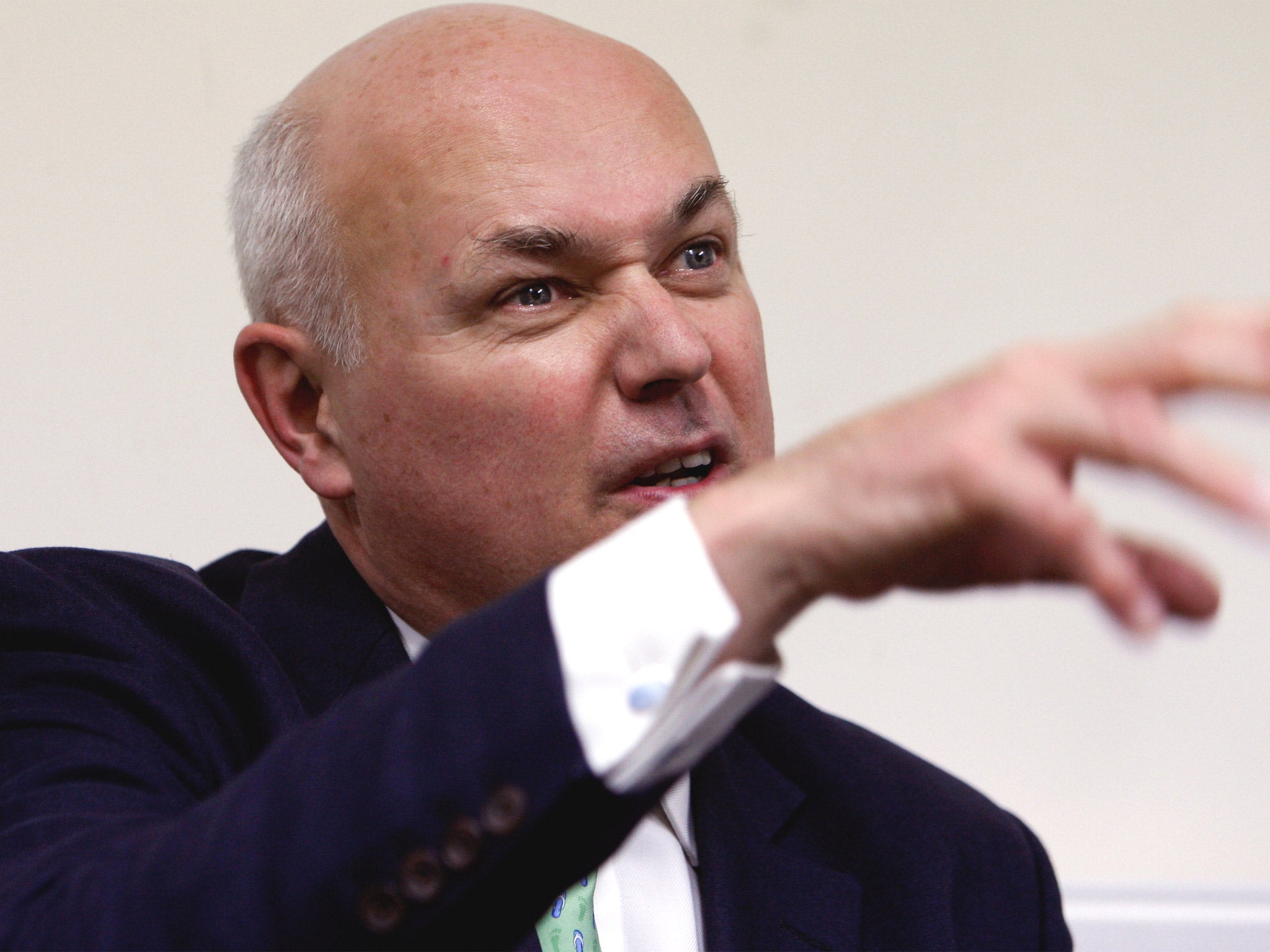Ministers urged to publish more accurate figures on benefit fraud that show it is 0.7% of claims
Pressure groups have accused ministers of portraying people living on social security as 'skivers'

Your support helps us to tell the story
From reproductive rights to climate change to Big Tech, The Independent is on the ground when the story is developing. Whether it's investigating the financials of Elon Musk's pro-Trump PAC or producing our latest documentary, 'The A Word', which shines a light on the American women fighting for reproductive rights, we know how important it is to parse out the facts from the messaging.
At such a critical moment in US history, we need reporters on the ground. Your donation allows us to keep sending journalists to speak to both sides of the story.
The Independent is trusted by Americans across the entire political spectrum. And unlike many other quality news outlets, we choose not to lock Americans out of our reporting and analysis with paywalls. We believe quality journalism should be available to everyone, paid for by those who can afford it.
Your support makes all the difference.Ministers have been urged to publish more accurate figures on benefit fraud to stop fuelling the impression that many claimants are “scroungers.”
In a report published today, an all-party committee of MPs said the Government should issue separate statistics about fraud and error on different days so that the media could not imply that mistakes made in paying benefits were fraudulent claims.
Pressure groups have accused ministers of portraying people living on social security as “skivers” and contrasting them with “hard-working” families who get up early to go to work.
The Work and Pensions Select Committee said the estimated rate of fraud is 0.7 per cent of total spending on benefits, but the public’s “misperception” is that it is about 34 times higher than that.
Dame Anne Begg, the committee’s Labour chairman, said: “Statistics relating to benefit fraud are often conflated in media reporting with those relating to error; and people’s perceptions of the level of benefit fraud are completely out of kilter with the official estimate. This is not helped by the Government publishing all of the statistics simultaneously. Whilst we understand that the boundary between claimant error and fraud is not always clear, we believe that publishing separate summaries of estimated fraud and error rates would be helpful.”
The committee pointed out the Government’s action plan to combat inaccurate claims included seven measures to tackle fraud and only two to stamp out errors. Yet there is twice as much error (£2.3bn a year) as fraud (£1.2bn) in the benefits system.
In 2012-13, £166.6bn was paid in benefits. An estimated £5.1bn was incorrectly paid – £3.5bn overpaid and £1.6bn underpaid. Of the overpayments, £700m was due to official error, £1.6bn due to claimant error and £1.2bn due to fraud.
Although a new “zero-tolerance” approach was trumpeted by the Government in 2010, MPs pointed out the level of fraud and error remained broadly the same as in 2005-06 – about 2 per cent.
The committee challenged the Government’s claims that universal credit, which merges six working-age benefits, will save hundreds of millions of pounds by reducing fraud and error. It expressed particular concern over the £24bn-a-year housing benefit element of universal credit. Housing benefit accounts for losses of £1.2bn, more than double any other benefit.
A DWP spokesman said: “Universal credit is expected to reduce losses due to fraud and error by £1bn in the next five years. Fraud and error in the benefit system has fallen since 2010.”
Join our commenting forum
Join thought-provoking conversations, follow other Independent readers and see their replies
Comments